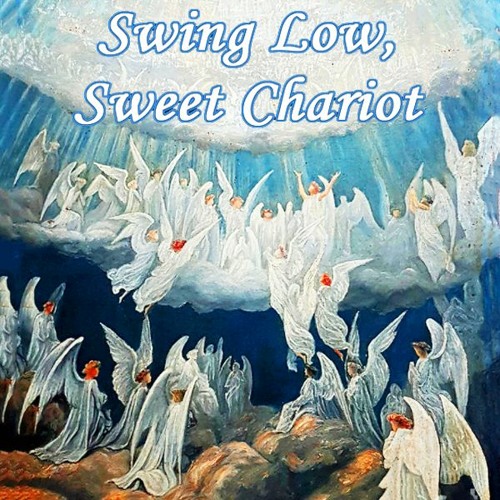 | Swing Low, Sweet ChariotWallace Willis, Henry Thacker Burleigh (arranged) |
Writer(s): Wallace Willis, Henry Thacker Burleigh (arranged) (see lyrics here) Published: March 1872 First Charted: May 14, 1910 (Fisk Jubilee Singers) Peak (different versions): 7 PM, 25 CL, 15 UK (Click for codes to charts.) Sales (in millions): -- Airplay/Streaming (in millions): -- radio, 16.06 video, -- streaming |
Awards (Willis):Click on award for more details. Awards (Fisk):Awards (Robeson): |
About the Song:“Swing Low, Sweet Chariot” “achieved immortality as a spiritual” SS with ties to the Underground Railroad. When slaves sang the lines “Swing low, sweet chariot / Comin’ for the carry me home” it was a signal that the Underground Railroad was coming to help the slaves to freedom. SH It was reportedly a favorite of Harriet Tubman, the heroic leader of the Underground Railroad. SH The song is credited to Wallace Willis, a slave likely born prior to the Civil War in Mississippi. However, he was owned not by a white man, but a Choctaw Indian. In the early part of the 19th century, members of their tribe took up farming, converted to Christianity, and purchased slaves to assimilate and avoid being removed from their land by white Americans. SH Unfortunately, they were still forced from their lands in the 1830s. Willis was hired out to the Spencer Academy, a Choctaw boys’ school. He and his wife lived in a wood cabin on the edge of campus and would sit outside in the evening singing spirituals such as “Swing Low, Sweet Chariot.” Alexander Reid, the superintendent of the academy, enjoyed their singing and often had them sing for students and visitors. In 1871, Reid saw the Jubilee Singers perform. They were a choir from Fisk Free Colored School, later Fisk University. The all-black college was founded in 1866 to focus on the education of freed slaves. In 1871, the Jubilee Singers toured to raise money for the school. They raised $40,000 in a year and a half, following roughly the route of the Underground Railroad, singing songs from the abolitionist movement. International tours in England and Europe followed. SS Reid introduced “Swing Low, Sweet Chariot” to the group after telling the school’s treasurer and musical director, George L. White, that he’d heard better. AS In March 1872, they published a book called Jubilee Songs: A Sung by the Jubilee Singers which included “Swing Low, Sweet Chariot.” While Willis has been credited with the song, like many spirituals, it bears similarities to the melody and style of songs from the Guinea coast and Equatorial Bantu where most slaves were taken. SS In the case of “Swing Low” it had the same response and refrain as “The Story of Tangalimlibo,” a Bantu song. Lyrically the text has a Biblical basis in II Kings, verses 2 and 11. LC A new version of the Fisk Jubilee Singers toured in 1899 and was eventually recorded by the Victor Talking Machine Company. Their first session was on December 8, 1909, and their first song was “Swing Low, Sweet Chariot.” It is “a slow, beautiful a cappella performance in the semi-classical European style” sup>SS which was marketed as a Negro folk song. SS It became a top-ten hit in 1910 and was inducted into the Grammy Hall of Fame and the National Recording Registry. The song’s popularity also owes a debt to classical composer Antonín Dvořák, who came to the United States in 1892 to run the National Conservatory of Music. He said, “the future music of this country must be founded upon what are called the Negro melodies.” SS He integrated “Swing Low, Sweet Chariot” into his famed Symphony No. 9 in E Minor (From the New World. In 1917, Dvořák’s student Harry T. Burleigh arranged “Swing Low” for solo voice and then published it in 1920 for mixed chorus. LC A 1926 recording by Paul Robeson is also in the Grammy Hall of Fame. In 1995, Ladysmith Black Mambazo took the song to #15 on the UK charts. Others who’ve done renditions include Louis Armstrong, Joan Baez, Johnny Cash, Eric Clapton, Benny Goodman, the Grateful Dead, Etta James, B.B. King, Dolly Parton, and Nina Simone. Resources:
First posted 9/2/2023. |








No comments:
Post a Comment